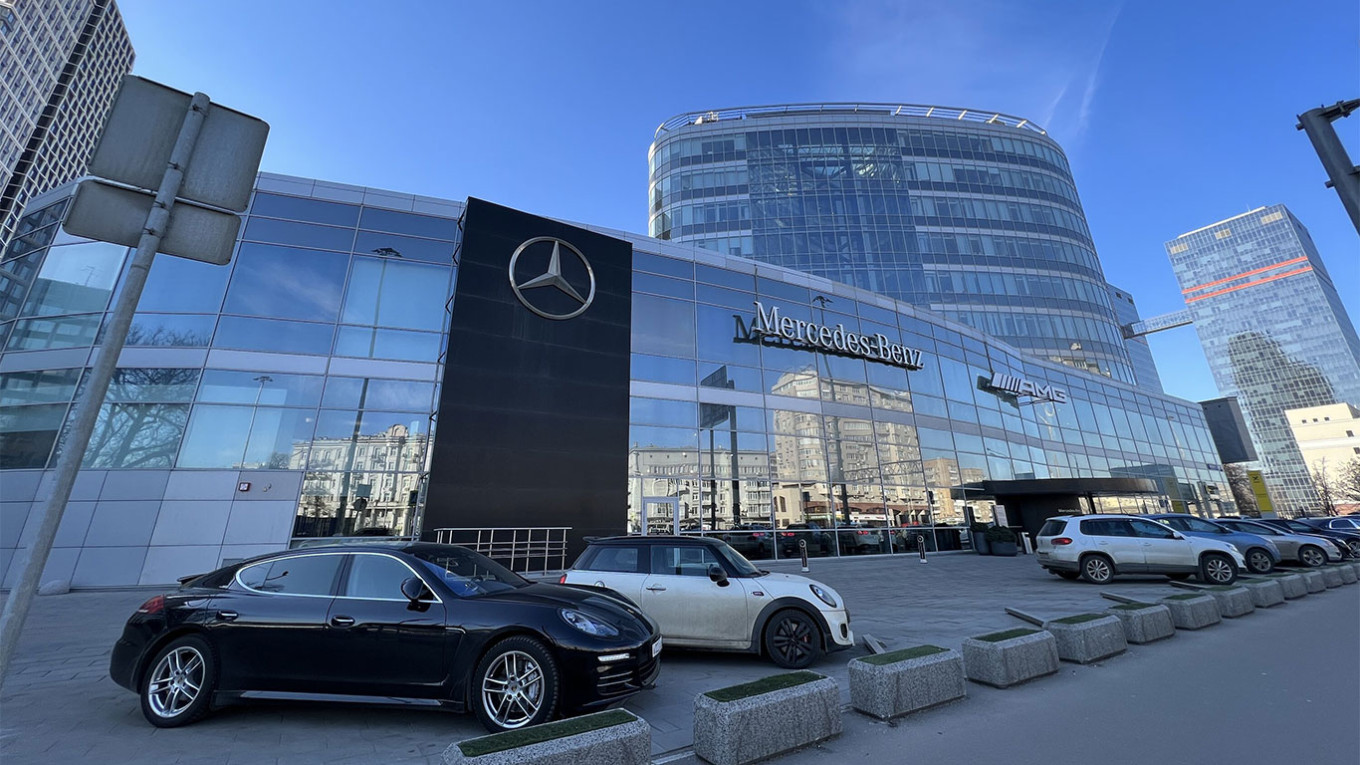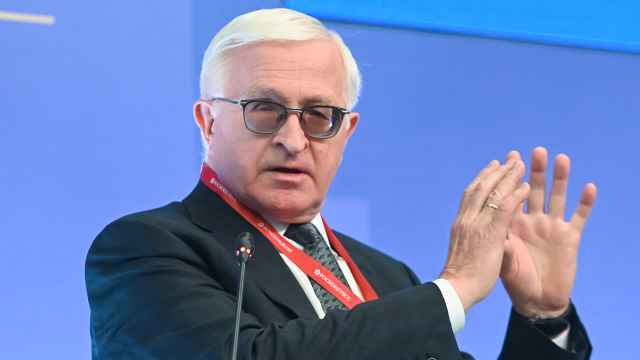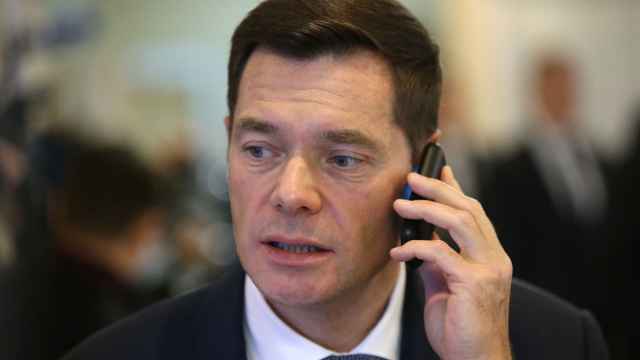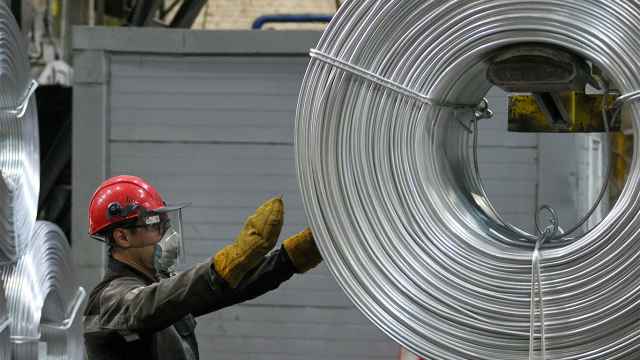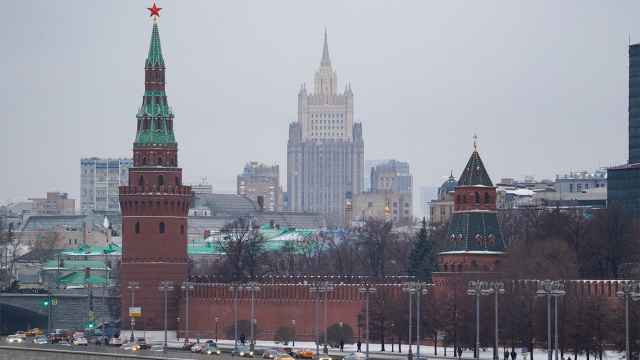Last week, Mercedes-Benz became the latest Western company to announce that it had sold off its assets in Russia – including its factory outside Moscow – as the repercussions of the war in Ukraine continue to be felt by international brands unable to operate easily in the country due to economic sanctions and global public opinion.
Mercedes is the third automotive giant with a factory in Russia to leave the country since February, following the exit of car giants Renault and Nissan, which between them estimated their total losses in Russia at a staggering $3 billion. Both companies sold their Russian assets for symbolic sums and cut their losses, with Renault's entire Russian infrastructure earning the company just two rubles, and Nissan earning one solitary euro for its plant.
An unusual clause in their exit deals allows both Renault and Nissan to buy back their Russian assets within the next six years, however, obliging them to compensate the interim owner only for any investment made since 2022. Curiously, Nissan is continuing to pay its Russian staff for the next year, despite there being no legal obligation to do so.
These facts suggest that the apparent exit of both companies from Russia is reluctant and largely symbolic, with both optimistic that sanctions will be lifted at some point in the next few years, allowing them to seamlessly re-enter the Russian market. Nissan appears to be even more optimistic than Renault, hanging on to its staff for a whole year to avoid having to start recruitment from scratch when it returns.
Creative solutions designed to allow major brands to re-establish their presence in Russia after a short interregnum are not limited to the auto industry, either. Fashion retailer Zara has come up with a very simple solution, announcing in March that it was shuttering its stores in Russia, but then reopening them in October under the name of its Lebanese franchisee, the Daher group.
Sports retailer Reebok has taken a similar approach, announcing the suspension of its operations in Russia, transferring its business to a Turkish holding company and rebranding its Russian outlets as Sneaker Box. Likewise, Coca-Cola – the ultimate Western brand – has not entirely disappeared from Russian stores either, despite the company's withdrawal from Russia. Coca-Cola is now sold in Russia as Kind Cola (Dobraya Kola), with Sprite and Fanta also being given new names on the Russian market, and all three are still produced in Coca-Cola's 10 Russian factories.
Admittedly, not all Western companies have rebranded, and not all have been able to find a buyer for their assets. Swedish furniture giant IKEA is one such case, having closed its four factories and 17 stores across Russia in March, leaving the stores empty and creating a nationwide furniture shortage that Russian manufacturers have proved themselves unable to fill.
In other cases, existing Russian companies have rushed to absorb the properties and infrastructure of their erstwhile foreign competitors. Since June, McDonald's 847 Russian restaurants have been rebranded Vkusno – i Tochka (Tasty – Period) by Siberian businessman Alexander Govor, who managed to acquire the departing hamburger giant's assets for a price "far below market value," though again, granting McDonald's the option to buy back the chain within the next six years, according to Kommersant.
Govor had already operated 27 McDonald's franchises in Russia, where he didn’t change much. He renamed some items, took "Mc" out of names, and removed a few items from the menu, including fries, which were imported. Reports of price rises and a drop-off in quality are unlikely to affect sales, since quality is important only when there is competition, and in many Russian cities McDonald's — that is, Vkusno I tochka — has none.
Exactly the same thing happened with Starbucks. In May, the company announced that it was leaving Russia, but by July it emerged that the chain's Russian business had been purchased by a group of investors including pro-Putin Russian rapper Timati. Starbucks became Stars Coffee, with the only obvious difference between the two being the successor brand's logo, which instead of the Starbucks mermaid now features a woman wearing a traditional Russian headdress.
In some cases, sanctions have only caused Western companies to suffer, while massively benefiting their Russian competitors. In October, Yum! Brands sold its 70 Russian KFC restaurants and KFC franchising rights for the country to Russian company Food Service for 1.3 billion rubles ($21 million). The new owners have rebranded KFC in Russia as Rostic's, an established Russian fast-food brand. However, given that Yum! Brands turned a profit of $39 million in Russia last year, the decision to sell its operations in the country at such a low price is not much better than selling them for one symbolic euro.
In the spring, Western economists predicted a drop in Russian GDP of between 8-11%. Today, the drop is predicted to be only 3.5-4.5%. While this is certainly not growth, it remains far from a crisis, and it definitely won't bring about an end to the war in Ukraine.
Perhaps the main miscalculation in the West has been that, unlike sanctions targeting specific sectors, broad trade and financial sanctions can no longer have the desired effect in a globalized economy. There are simply too many routes for the transfer of goods and money, and those standing to gain from sanctions are all too numerous.
Case in point is the continued survival of the brutal regimes in Iran and North Korea, both of which have been under Western sanctions for decades, and neither of which show any sign of imminent collapse. For Western sanctions on Russia to have the desired effect, they must be overhauled and applied more effectively.
A Message from The Moscow Times:
Dear readers,
We are facing unprecedented challenges. Russia's Prosecutor General's Office has designated The Moscow Times as an "undesirable" organization, criminalizing our work and putting our staff at risk of prosecution. This follows our earlier unjust labeling as a "foreign agent."
These actions are direct attempts to silence independent journalism in Russia. The authorities claim our work "discredits the decisions of the Russian leadership." We see things differently: we strive to provide accurate, unbiased reporting on Russia.
We, the journalists of The Moscow Times, refuse to be silenced. But to continue our work, we need your help.
Your support, no matter how small, makes a world of difference. If you can, please support us monthly starting from just $2. It's quick to set up, and every contribution makes a significant impact.
By supporting The Moscow Times, you're defending open, independent journalism in the face of repression. Thank you for standing with us.
Remind me later.



